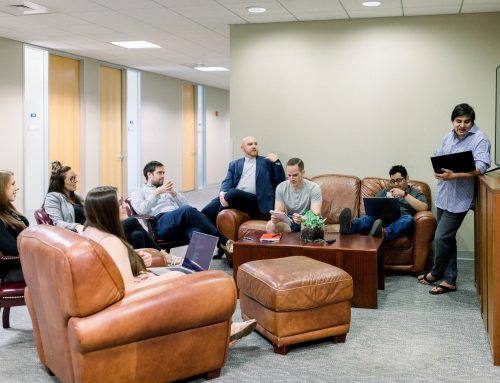Returning to the office remains a source of contention between employees and employers in almost every industry. The pandemic showed us not only that employees could be relied on to work remotely but that companies could remain profitable. But almost three years later, we’re still debating where people should work. Most employers have settled on a hybrid model that offers flexibility, allowing employees to work from home or from a coworking facility. However, some companies are pushing for a complete return to the office.
Returning to the Office by the Numbers
- Returning to the office has been inching forward since the start of the year. In the first four months of 2022, office occupancy rose 20 percent. This statistic is based on recent studies that track card swipe or fob entry data. Despite efforts to coax workers back with free food, bonding activities and other perks, that number has hovered around 44 percent compared to pre-pandemic levels.
- As of Aug. 22, occupancy in 10 of the country’s top business centers, including D.C., New York City and Los Angeles, was 43.5 percent of what it was before the pandemic.
What Employers Say About Returning to the Office Fully:
- According to a recent report from Resume Builder, ninety percent of companies said they will require employees to return to the office at least part of the week in 2023. A fifth said they will fire workers who do not return.
- For companies currently using a hybrid work policy, 77% said that policy will change in the next year. Fewer than one-fifth said they will require employees to be full time in the office. 40% said they will require workers to come in four days a week. And 31% said three days a week.
- Notably, nearly three-quarters of companies surveyed said they still intend to hire remote workers in the future.
But employees are pushing back. GM announced earlier this year that employees would be required to return to the office. Immediately following the announcement, the company faced an enormous amount of backlash from employees. GM was forced to walk it back and clarify their policy within a few days of that announcement.
And it’s clear that the ability to hire and retain talent is top of mind in the C-suite, with more than three out every four executives saying it’s the most critical factor to achieving growth.
What Employees Say About Returning to the Office:
- A new survey by Monster survey found that 40% of workers surveyed said they would quit if they were forced to return to the office even one day a week.
- Despite fears of a recession, U.S. Bureau of Labor Statistics data shows that there are currently two job openings for every unemployed person.
- A 2021 survey by LinkedIn of what matters most to job seekers around the world found that the No. 1 employee value proposition is good work-life balance, followed by excellent compensation and benefits.
- Employees are more committed to working from home than they were last fall, according to a June survey of more than 8,000 workers by Gallup, with the desire to work exclusively from home more than doubling since October 2021. Among fully remote workers, 60 percent said they would be “extremely likely” to look for other opportunities if their employer didn’t offer remote work at least some of the time.
Countless industry studies found that a hybrid schedule, some days in the office and some days working remotely – is the holy grail for workers who want to maintain the work-life balance they’ve enjoyed over the last few years. When compared to workers who are either at the office or working remotely full time, those currently in a hybrid model are more likely to report positive impacts on creativity, relationships, productivity, communicating, and problem solving.
And when the remote work is done at a coworking facility, consider this…
- Harvard Business Review researchers studied how employees thrive in the workplace. They found that individuals working in coworking spaces reported having a 6 out of 7 on a “thriving point scale”. This number is higher than the average employee who works within a traditional office space.
- In another study of employees transitioning from traditional office spaces to coworking spaces, 89% of respondents were happier. And 83% said they were less lonely, while 71% felt more creative after the transition.
So, Will Employees Continue to Have the Upper Hand? Or Will Returning to the Office Happen?
According to Forbes, the jobs market will normalize in time. But how long it will take for the majority of companies to return to the office full-time remains to be seen. For now, companies will need to work harder to recruit the people they need. And that means being receptive to workers’ wants and needs – including the ability to work remotely.
Choose CoLab at 55 Merritt Boulevard in Trumbull, CT
CoLab offers coworking memberships in a safe, convenient, and cost effective environment among a community of professionals like you. With a wide variety of office and shared spaces available to choose from, CoLab provides a wealth of networking opportunities. Contact us at 203-208-8488 for a tour or schedule a tour here!






